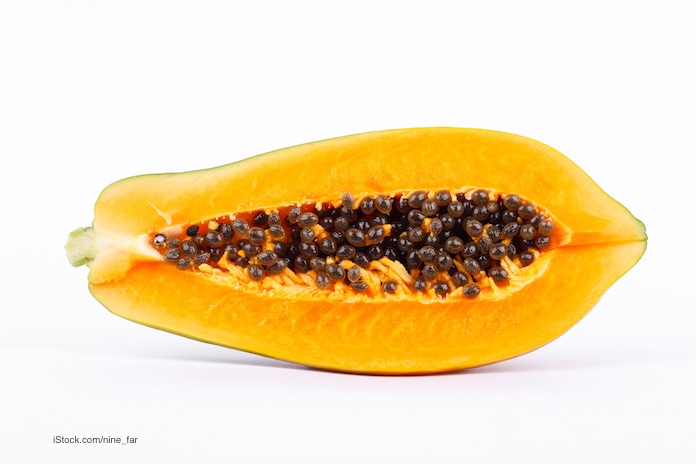The ongoing deadly Salmonella outbreak linked to Maradol papayas has been updated by the FDA. Yesterday, the agency said that Grande Produce, which distributes the fruit, told them that they issued a “limited recall” of their Caribeña brand Maradol papayas distributed nationwide from July 7 – July 18, 2017. That company is located in San Juan, Texas.

As of July 25, 2017, Grande Produce has not issued a press release to tell consumers. The FDA is now advising consumers to avoid all Caribeña brand Maradol papayas. These papayas can be green before they ripen and turn yellow. Do not eat Caribeña brand papayas regardless of their color.
However, the FDA also said that there are illnesses in states where Grande Produce did not distribute papayas. That means that there are likely other distributors who have been selling contaminated papayas. The farms that produce these papayas are located in Mexico.
The CDC states that there are at least 47 people who are sick in this outbreak. Twelve people have been hospitalized. And one person in New York City has died. The bacteria that caused this multistate outbreak is Salmonella Kiambu.
The Maryland Department of Health also found Salmonella Thompson on papaya samples taken from a retail store in Baltimore. Some people in that state are ill with Salmonella Thompson infections. The CDC is working to collect more information to see if those people are part of the multistate outbreak.
The outbreak case count by state is: Iowa (1), Kentucky (1), Louisiana (1), Maryland (5), Massachusetts (1), Minnesota (1), New Jersey (12), New York (13), Pennsylvania (4), Texas (1), Utah (1), and Virginia (6). All 47 patients were sickened by bacteria with the same Salmonella Kiambu strain, confirmed by pulsed-field gel electrophoresis (PFGE) and Whole Genome Sequencing (WGS).
The symptoms of a Salmonella infection include diarrhea, abdominal cramps, fever, and vomiting. Symptoms usually begin six to seventy-two hours after exposure to the pathogenic bacteria. Most people are ill for about a week, and most recover without treatment.
However, some people can become so ill they must be hospitalized. Diarrhea can be life-threatening, especially in the elderly, the very young, people with chronic illnesses, and those with compromised immune systems. If the infection gets into the bloodstream, sepsis can occur, which is another life-threatening complication.
And Salmonella infections can have lifelong health consequences. Some people can develop Reiter’s Syndrome after this illness, which causes reactive arthritis and eye problems. High blood pressure, irritable bowel syndrome, and chronic GI problems can develop after a Salmonella infection.
If you ate yellow papayas and have been suffering the symptoms of a Salmonella infection, see your doctor. This illness should be on your medical chart in case complications arise in the future.
Pritzker Hageman, America’s food safety law firm, successfully helps those who have been hurt by adulterated foods in outbreaks throughout the country. Its lawyers have won hundreds of millions of dollars for foodborne illness patients and their families, including the largest verdict in American history for a child who developed hemolytic uremic syndrome. after an E. coli infection. The firm publishes the E-news site, Food Poisoning Bulletin, a respected Google News source for food safety news. Pritzker Hageman lawyers are often interviewed as experts on the topic by major news outlets including CNN, the Wall Street Journal, and the New York Times. And the firm represents people harmed by pathogenic microorganisms in Legionnaires‘ disease, surgical site infections, and product liability cases.




